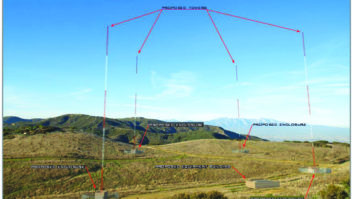
credit: leremy/iStockphoto Managers often spend hundreds of dollars an hour without even realizing what they’ve done. How do they get away with this? It’s simple. They hold a meeting.
Yes, every time a manager conducts a meeting with several people, he or she should consider the investment. Think of it this way: Convert each attendee’s salary to their hourly wage for the length of the meeting. Especially when considering higher-paid employees such as department heads, well, you get the picture.
All managers, especially senior ones, would do well to be aware of the total expenditure and be motivated to renovate their meeting style and activity. For example, being better-prepared or finding ways to make meetings more efficient, and therefore shorter, can reap many benefits. During 2014, please consider the investment you are making in meetings and really make every moment count.
HERE’S HOW
Meetings must have a written agenda. This doesn’t have to be circulated, nor must the group approve it. The meeting leader can even scribble the agenda on a napkin if she likes. It still counts as a written topical plan, the key to preventing a meeting from devolving into tangents and trivia. It’s perfectly fine to have attendees add items to this agenda.
Ideally, they should give the meeting leader a heads-up on their addition. It can be acceptable to enter the meeting with an unseen item. However, an attendee adding a time-consuming item to the agenda without prior discussion can result in what one of my peers used to refer to as “time suckage.”
Also, the topic an attendee selects may not be appropriate for that specific meeting, or perhaps the management lead would have liked some time to prepare thoughts about the topic prior to discussion.
The start time and maximum length of a meeting must be a solid contract with the constituents. If the leader of a meeting is never late, it’s highly likely the attendees will be late. Meetings should rarely run over the prescribed time. They may always be shorter.
More often than not, after the leader of a meeting covers an agenda, he will proceed one-by-one around the table asking others if they have anything they’d like to report or discuss. It should be made perfectly clear that while individuals should do very brief updates, they may also choose not to say a word.
Too often, people feel pressured to say something simply because everyone at the table is contributing to the discussion. This is counterproductive and encourages mundane and often irrelevant topics to emerge.
Managers often exercise wisdom by cancelling regularly scheduled group meetings. This can happen during a very busy time for a station when everyone has so many projects, they don’t have enough hours in the day. It can occur when a manager simply doesn’t form a substantial agenda that requires an entire group. And here’s one that is often missed until the late minute: Too many people are on vacation or simply not open to attend.
The most effective meetings you’ll have with staff are likely one-on-one. Vary the location so that the meeting is not always in your office. Coffee shops are good. Bars can work. Outside on a bench is a nice change of scenery. The mere location can be mood-altering and enables the person to hear more clearly whatever compliment or correction you are delivering. Some of the most memorable meetings I’ve had with bosses have been during walks on sunny days.
Do all meetings have to be in person? Absolutely not! It’s about time you offered more flexibility in how people join your meetings. Let them Skype in, or try Google+ for multiple on-camera abilities. At the least, allow people to literally phone it in without punishment.
Should meetings have a smartphone rule? Yes. Discuss the “on/off” approach with your group to drive consensus. Some groups will want all phones shut down or at least on vibrate. Others will want permission to check email or voicemail once every 10 minutes. Feel free to try different approaches and see what works best for your particular group.
Whether it’s sales, programming or department head meetings, two things are certain: Everybody has real work to do; and nobody enjoys long meetings.
Mark Lapidus is president of Lapidus Media.












